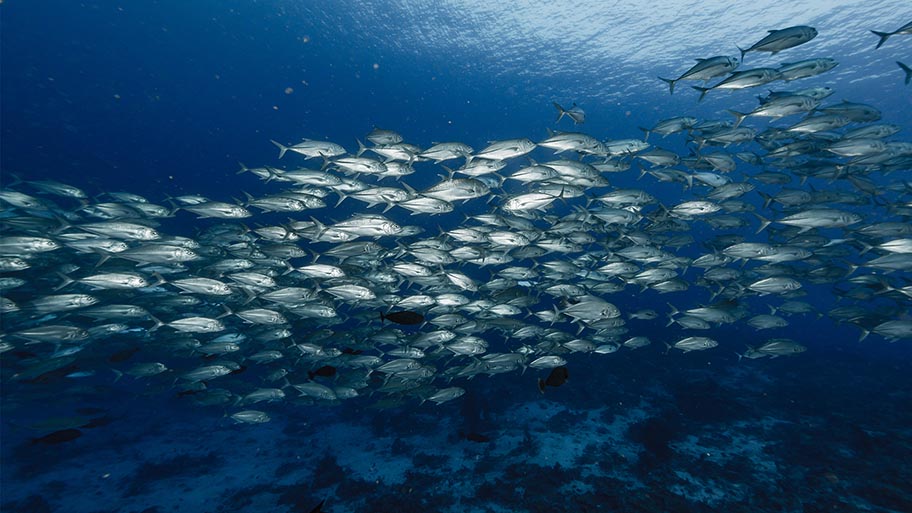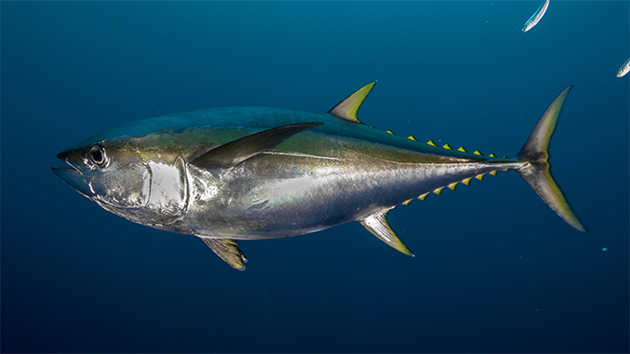
A Spanish tuna association has become the first fishery to gain simultaneous certification to the MSC Fisheries Standard for sustainability, for tropical tuna catch in all four oceanic regions.
The newly certified fishing activity accounts for 3% of the world’s total tropical tuna catch, a significant milestone for tuna sustainability. In total more than 40% of the world’s tuna catch is now certified to the MSC Standard.
Following two years of assessment by independent auditors, the Spanish tuna association AGAC (Asociación de Grandes Atuneros Congeladores, Association of Large Freezer Tuna Vessels), with members in all four oceans, has achieved an unprecedented feat.
Forty-four of AGAC’s purse seine vessels met the MSC Fisheries Standard and achieved certification for their catch of yellowfin tuna (Thunnus albacares) in the Eastern and Western Pacific, and the Atlantic Oceans; skipjack tuna (Katsuwonus pelamis) in the Western Pacific and Indian Oceans; and bigeye tuna (Thunnus obesus) in the Western Pacific.
AGAC is also the first purse seine fishery using both free school and Fish Aggregating Device (FAD) methods, to achieve certification in the Atlantic Ocean.
In 2012, AGAC introduced a Code of Good Practice (CGP), with compliance annually verified by the independent scientific organization AZTI (Members of the Basque Research and Technology Alliance). The code addresses impacts on , with impacts further addressed in 2016 after AGAC entered a Fisheries Improvement Project (FIP) and a separate project for the use of biodegradable FADs. In total AGAC has spent over 10 years improving the sustainability of its operations.
The independent assessment of fisheries aiming for certification against the MSC Standard is a long process and most fisheries only invest in a full assessment following a favourable pre-assessment. Unusually, AGAC opted to submit its entire fishing operation - covering twelve tropical tuna stocks around the world - for full assessment, despite knowing not all would achieve certification. The process has meant an unparalleled and independent assessment on the state of sustainability of all tropical tuna stocks around the world.
Over 2,000 crew members from the AGAC fleet contributed ideas on effective solutions to sustainability challenges. Association members also made a total investment in new technologies, operations and research of more than €17 million (£14,5 million). Furthermore, AGAC has committed to implementing action plans to resolve weaknesses identified for both the certified and uncertified stocks.
AGAC CEO, Julio Morón said, “AGAC’s members are first and foremost interested in maintaining the health of the resources on which our livelihood depends. Achieving MSC certification after so much work, investment and effort on the part of all the OPAGAC-AGAC family encourages us to continue these efforts.”
The certification of the AGAC fleet comes one week after the publication of the UN SOFIA report (2022) which called for “an evolving and positive vision for fisheries… to fight poverty, hunger and malnutrition.”
MSC Program Director for Spain and Portugal, Laura Rodríguez said: “The certification of the AGAC fleet is a milestone for the sustainability of tuna, due to the number of vessels involved, the fishing operations considered, and the different tuna populations analysed simultaneously. We congratulate AGAC for a decade of exhaustive work and its long-term commitment to preserving this important resource.”

